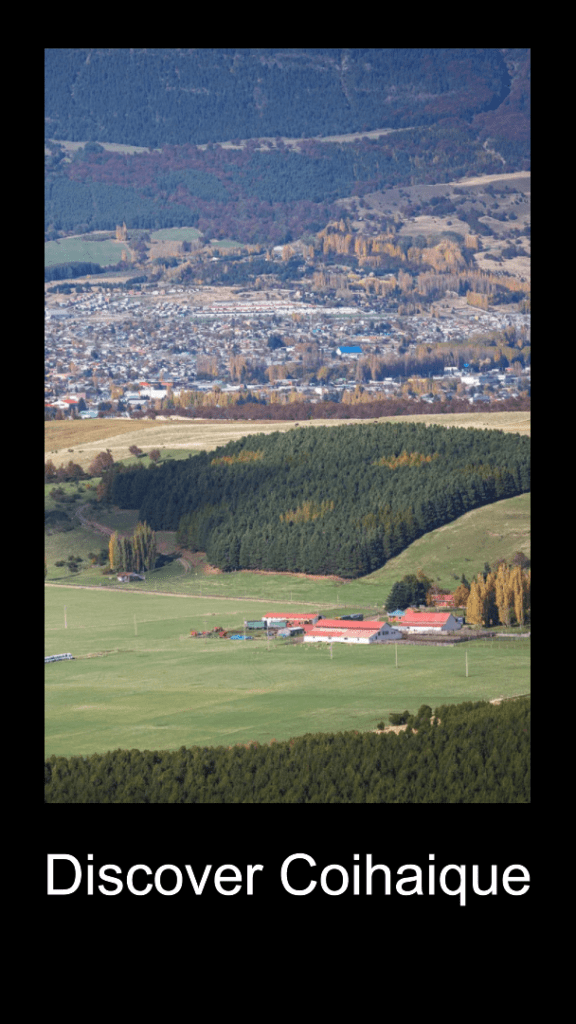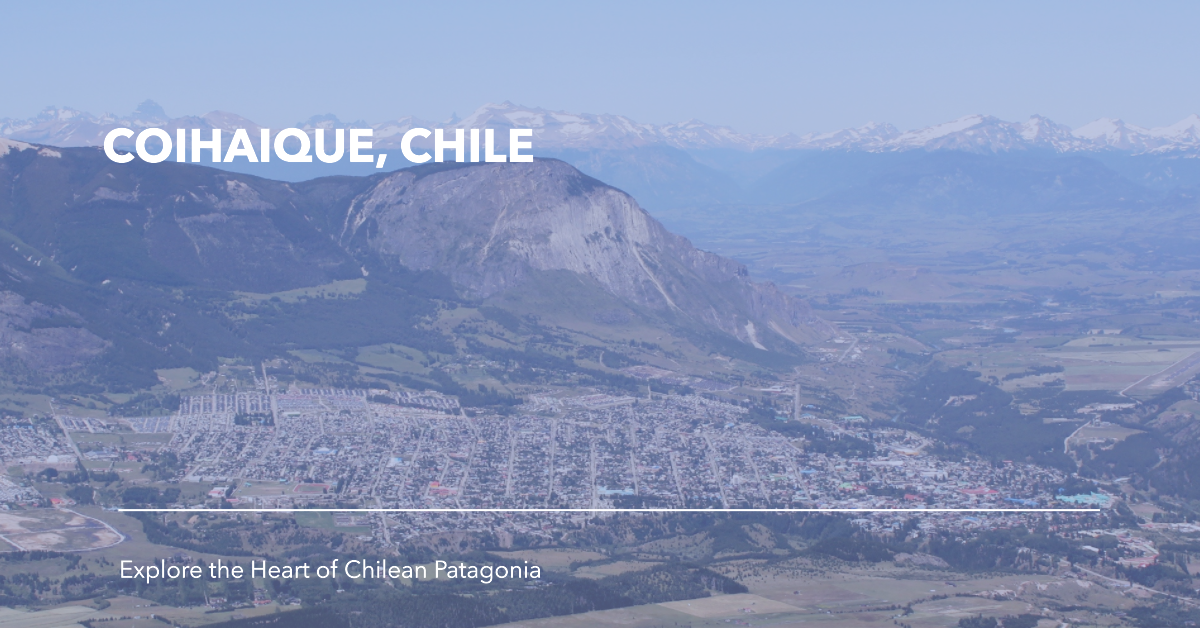Coihaique
Coyhaique is the financial and capital city of the Coyhaique Province and the Aysén Region. Coyhaique was initially settled in 1929.
The Coyhaique commune covers an expansive area of 43,297 square kilometres and is encompassed by the Simpson and Coyhaique rivers and the embracing presence of towering mountains.
Coyhaique’s Economy
Agriculture is one of the cornerstones of Coyhaique’s economy. The Aysén Region is known for its fertile lands, making it an ideal location for sheep farming. The production of high-quality lamb is a significant contributor to the local economy.
Coyhaique’s rivers and lakes are pivotal to the region’s economic prosperity. The Aysén Region is a hub for Chile’s thriving salmon and trout farming industry. The region’s pristine waters offer an ideal environment for aquaculture, and as a result, the production of salmon and trout is a vital component of the local economy.
The tourism sector is experiencing remarkable growth as visitors flock to the region to explore its vast, untouched wilderness. With opportunities for hiking, fishing, kayaking, and other outdoor activities, tourism has become a key driver of the local economy.
The economy of Coyhaique is made up of a mix of farming, fishing, and tourist activities. It’s connected to land and water, and it’s surrounded by untouched nature. This makes it one of the most prosperous economic centres in the whole of Patagonia
Demographics
Coyhaique has an estimated population of 60,494, as of 2021, around 89% live in the urban area and around 11 in the rural areas. Please note these are only estimations.
Coyhaique’s population, like the population of the entire country of Chile as a whole, is composed of a significant proportion of Europeans and indigenous peoples. Indigenous peoples in the area include Mapuches, Aonikenks, and others.
| Statistic | Data |
|---|---|
| Population | Approximately 60,000 |
| Region | Aysén Region |
| Area | 43,297 square kilometres or 16,717 square miles |
| Official Language | Spanish |
| Ethnicity | Diverse, including people of European and indigenous descent |
| Major Religion | Roman Catholicism, with religious diversity |
| Education | Presence of primary, secondary, and higher education institutions |
| Economic Sectors | Agriculture, fishing, aquaculture, and tourism |
| Main Airport | Balmaceda Airport, located approximately 50 kilometres from Coyhaique |
| Official Website | https://www.coyhaique.cl/ |


